
A Geneva-based NGO is Israel’s answer to aid in Gaza
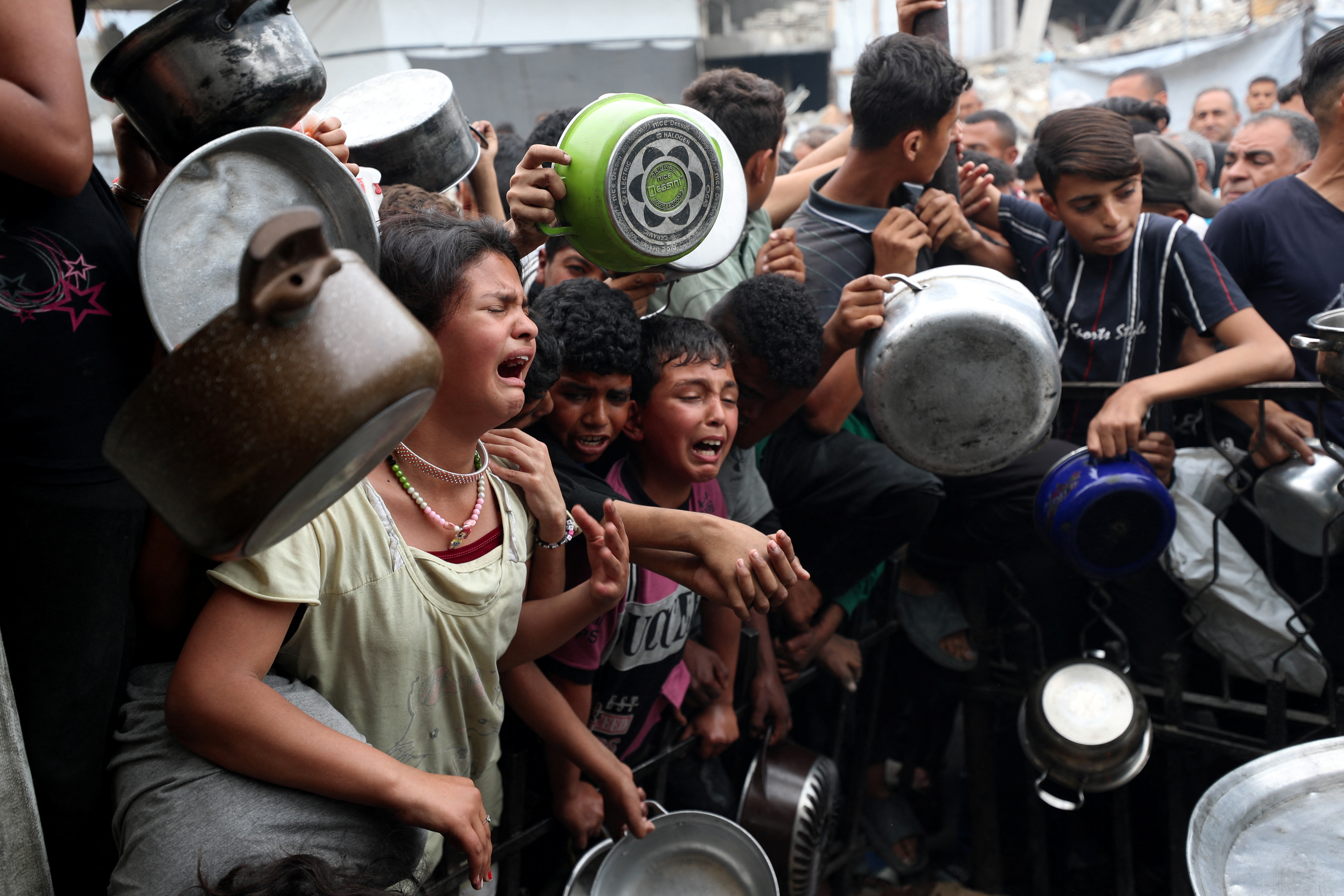
The Gaza Humanitarian Foundation, an NGO backed by Israel and the United States, will privatise aid into Gaza. The United Nations has strongly opposed the plan.
Israel’s plan to implement a controversial US-backed proposal to overhaul aid delivery in Gaza could signal the end of the United Nations Relief and Works Agency (UNRWA) in the besieged enclave.
The plan, officially called the Gaza Humanitarian Foundation (GHF), also a recently established NGO registered in Geneva, proposes a complete overhaul of aid delivery in Gaza. It would establish humanitarian hubs in the enclave’s south that would be managed, facilitated and secured by private companies and military contractors – probably American. It would essentially be sidestepping the robust humanitarian aid delivery system built and maintained by UNRWA for decades.
It comes after Israel imposed a complete blockade on aid into Gaza following the collapse of the temporary truce between Israel and Palestinian militant group Hamas. Humanitarian access has been severely restricted since March 2, and Israeli military operations in Gaza have resumed in full since March 17-18. Last week UN officials and NGOs warned of an impending risk of famine.

Last week Israeli Prime Minister Benjamin Netanyahu agreed to allow limited deliveries of aid into Gaza after mounting pressure from allies while simultaneously vowing to take over all of Gaza to definitively defeat Hamas, a move that was swiftly condemned in a joint statement issued by the United Kingdom, France and Canada.
Anti-UNRWA rhetoric
Since October 7, 2023, when Hamas launched a surprise attack in southern Israel which killed about 1,200 people, Netanyahu and his far-right government have ramped up anti-UNRWA rhetoric.
On October 28, 2024, the Israeli Knesset, the government’s legislative arm, adopted two bills effectively banning the UN body from operating in the occupied Palestinian territories. Major donors such as the United States, Sweden and others have cut or paused funding, plunging the organisation into a financial crisis that compounds the humanitarian catastrophe in Gaza.
“It’s been clear for a while that Israel does not want UNRWA on the scene at all,” said Anne Irfan, a lecturer at University College London (UCL) and author of the book, Refuge and Resistance: Palestinians and the International Refugee System.
She says the move is “consistent with the direction Israel has been going” to create an alternative for aid delivery in the Gaza Strip that cuts out UNRWA completely – potentially through other UN organisations such as the World Food Programme (WFP) or through private companies and contractors.
According to the Gaza Humanitarian Foundation’s proposal, the GHF offers a new approach to humanitarian aid based on pragmatism, oversight and leadership. It will deliver essential aid “securely”, employ the world’s most “respected” and “prominent” audit and law firms to ensure transparency and apply “strict adherence” to humanitarian principles. “There will be no eligibility requirements for aid,” the proposal says.

However, in a recent address Netanyahu contradicted the proposal by announcing that aid would be given to Palestinians only if they “did not return to the areas from which they came”.
The GHF, according to the proposal, will initially set up four scalable Secure Distribution Sites (SDS) that will each provide 300,000 people with access to food and water and “other necessary supplies”. Beyond the initial phase, the operation can expand to reach two million people in Gaza.
The proposal does not provide details on how the foundation will operate on the ground or where funding for overall operations will come from. At the executive level, the foundation will be governed by “seasoned crisis operators and fiduciaries”.
On Monday an Israeli media outlet, Ynetnews, published images of “armed and vest-clad personnel”, supposedly “former US special forces veterans”, already in Gaza preparing to deliver aid once the GHF is operational, likely after May 24. Until then, the limited deliveries of aid will follow the “old distribution model”, the report said.
According to the US Ambassador to Israel, Mike Huckabee, the GHF would not be an Israel Defense Forces (IDF) operation. “The IDF will not be involved” in distribution, Huckabee said at a press briefing in Jerusalem on May 9. But he added that the “IDF will be involved in keeping the parameter safe”. When asked by a reporter how the plan would be funded and when it would be rolled out in Gaza, Huckabee said: “I don’t know and I don’t know.”
In a separate briefing on May 11, Israeli Foreign Minister Gideon Sa’ar said Israel “fully endorses” the plan, which would prevent Hamas from stealing humanitarian supplies – a claim Hamas denies – and “allows for aid to flow based on international humanitarian law and its principles”. Sa’ar added that Israel would cooperate with countries and NGOs to implement the plan.
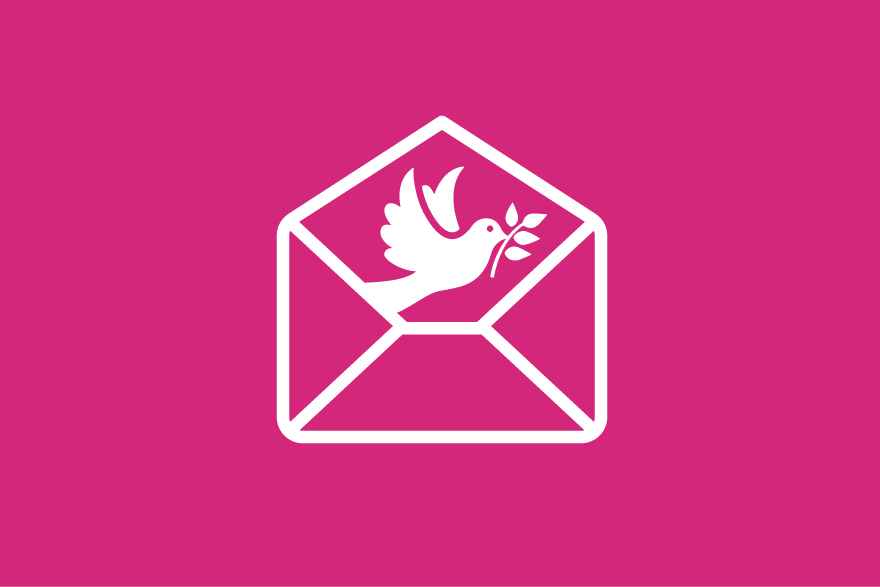
More
International Geneva
From the start, the foundation has been vehemently rejected by UN leadership and humanitarian groups, who say the GHF, at its core, does not adhere to basic humanitarian principles.
“Let me be clear,” said UN Secretary General António Guterres to reporters on April 8. “We will not participate in any arrangement that does not fully respect the humanitarian principles: humanity, impartiality, independence and neutrality.”
Weeks later, the Humanitarian Country Team of the Occupied Palestinian Territory – a group of organisations that help facilitate the logistics of aid – published a statement that accused the plan of being “dangerous” and part of an Israeli “military strategy” that clashes with humanitarian principles and “appears designed to reinforce control” and further entrench “forced displacement”.
On May 13, Tom Fletcher, the UN’s Emergency Relief Coordinator, in his remarks to the Security Council in New York, blasted the proposal, calling it a “cynical sideshow”, a “deliberate distraction” and a “fig leaf for further violence and displacement” of Palestinians in the besieged enclave.
At the same Council meeting, the head of the US mission to the UN, Dorothy Shea, called the GHF “a real solution that will ensure assistance goes to the civilians it was meant for, not Hamas”. She also pushed back against the proposal’s detractors. “There is no high road in opposing this plan,” she said.
Established in 1949 by a UN General Assembly resolution, UNRWA provides relief, education and health services to Palestinians in Gaza, the West Bank – including East Jerusalem – Jordan, Lebanon and Syria, who became refugees after the Arab-Israeli War of 1948, also called the Nakba (catastrophe).
Initially, according to Anne Irfan, the Israeli government “quietly tolerated” the presence of UNRWA, “even though it hasn’t liked it”.
“Israel has seen UNRWA as preferable to a lot of the alternatives,” Irfan told SWI swissinfo.ch. “For most of history, the Israeli security establishment has quietly recognised that UNRWA is really doing Israel a favour because its services cheapen the cost of the occupation.”

Symbol of UN commitment
The dismantling of the decades-old UN agency has both an organisational and a political aspect, said Jalal Al Husseini, associate researcher at the French Institute of the Near East. “UNRWA represents a political asset for Palestinian refugees in general,” he said. It’s a symbol of the UN’s commitment to ultimately implement resolution 194 and a “reminder of the fact that this issue has not been solved”.
Adopted by the UN General Assembly in 1948, after the Arab-Israeli war, when thousands of Palestinians were either expelled or fled their homes, resolution 194 called for the return of Palestinian refugees “at the earliest practicable date” in addition to compensation for those “choosing not to return”.
According to Husseini, UNRWA was meant to be a temporary fix. “It was expected to reintegrate refugees within eight months,” which “quickly proved unfeasible” and “too ambitious”, he said.

‘So many red flags’
The GHF is the approach to humanitarian aid that Jørgen Jensehaugen, a research professor at the Peace Research Institute Oslo, says he has warned against. Actively “undermining and delegitimising” UNRWA has paved the way for this, he told SWI swissinfo.ch.
Notably, David Beasley, former executive director of the World Food Programme, has been nominated for the foundation’s advisory board. His appointment has not yet been confirmed.
“You already have a UN system, particularly under UNRWA, ready and able to provide food and water and shelter,” said Paul Spiegel, director of the Center for Humanitarian Health at Johns Hopkins University in Baltimore. “It’s very concerning where this is going […] There are so many red flags.”
Whether the GHF can operate in Gaza without the backing of the UN and other humanitarian organisations remains unclear. If the GHF can secure the funding and contracts it needs to procure and deliver aid, then the UN and its partners may be forced to comply.
Edited by Virginie Mangin/livm/ts
More

In compliance with the JTI standards
More: SWI swissinfo.ch certified by the Journalism Trust Initiative

































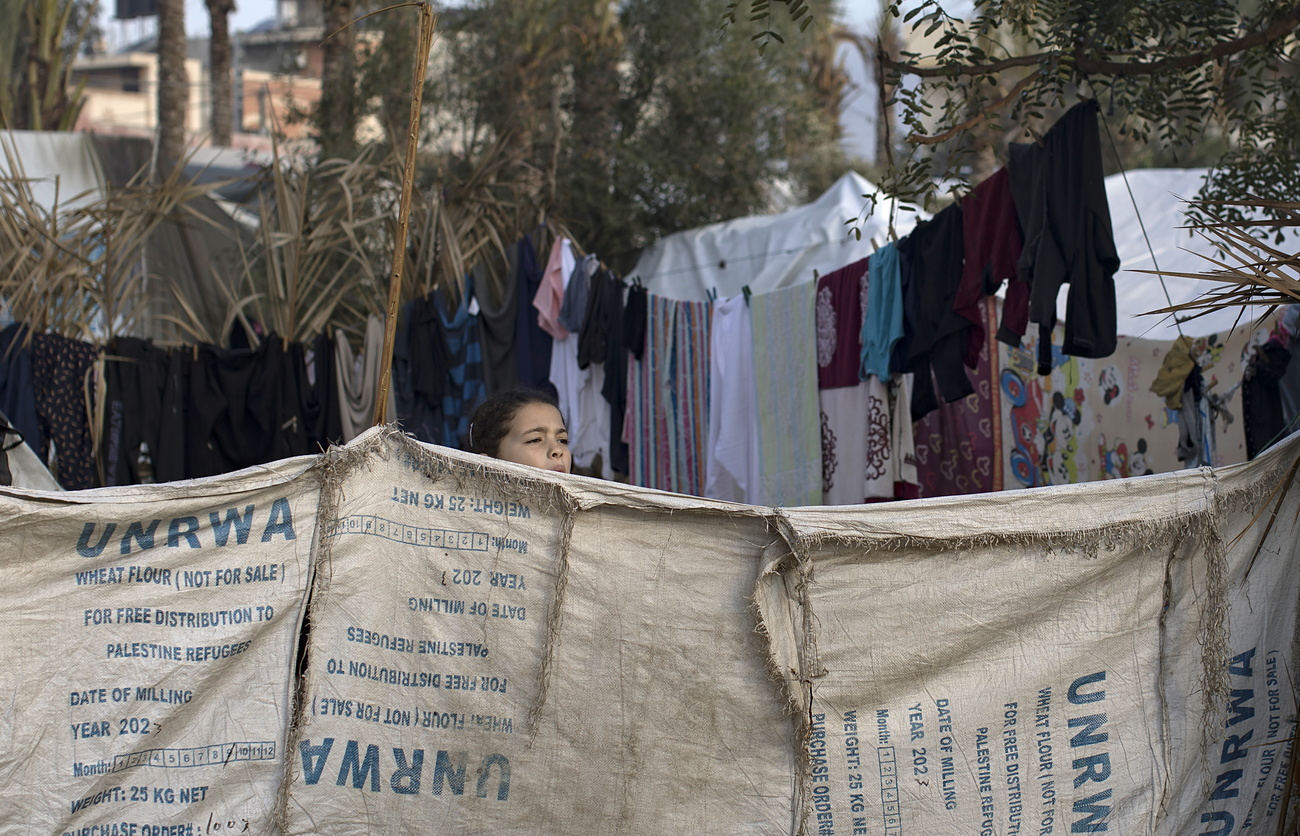
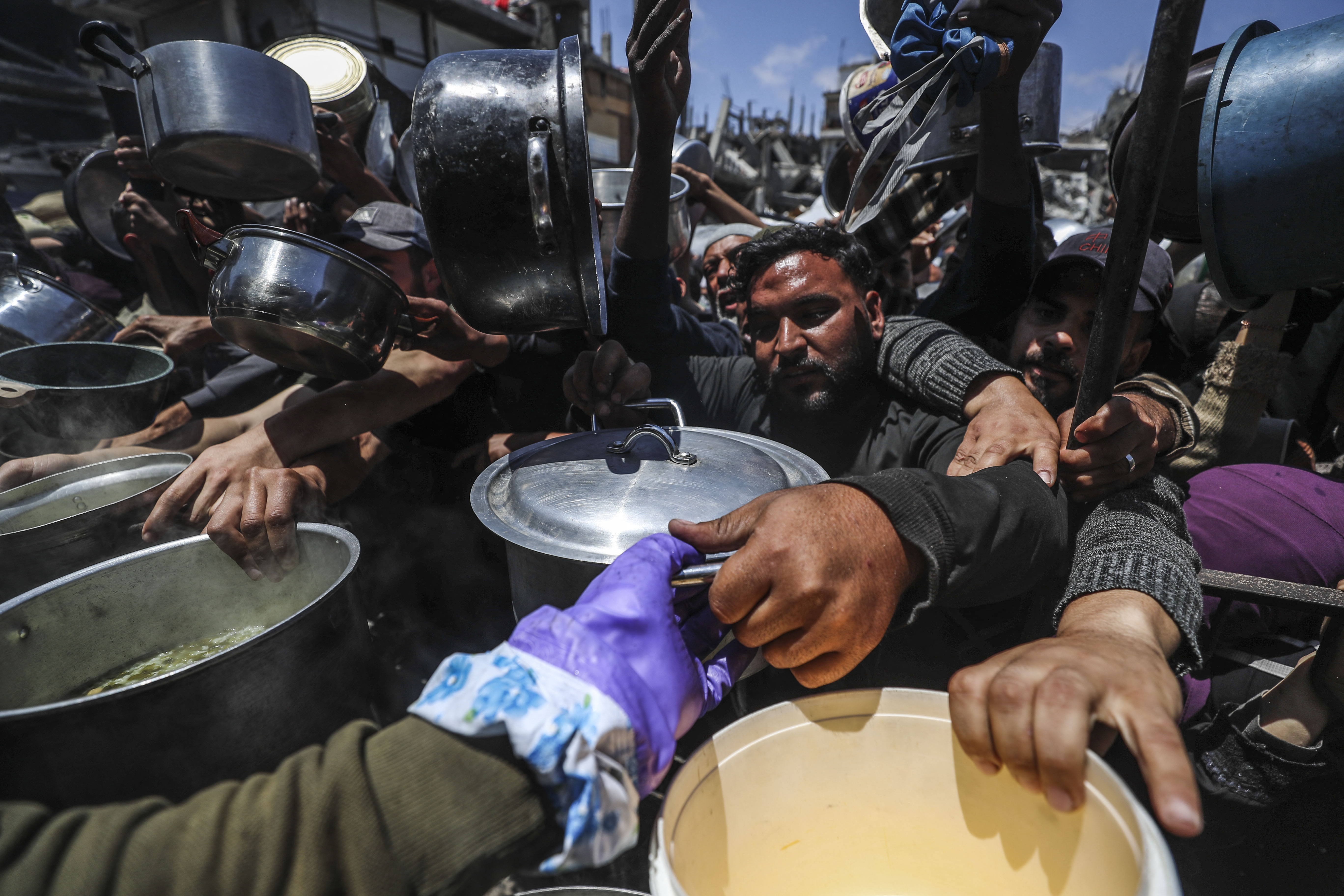
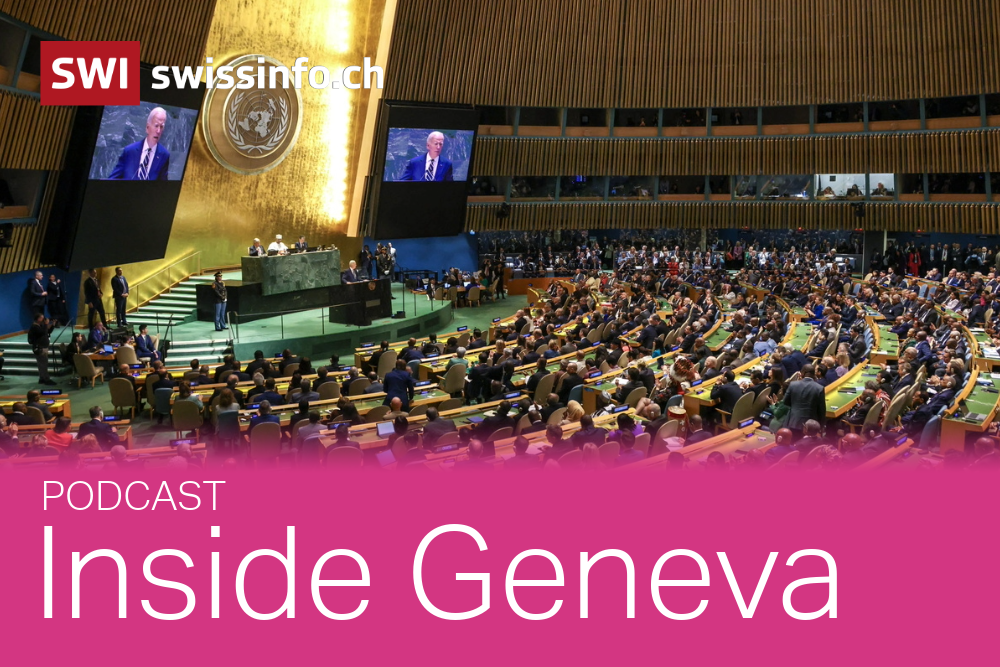
You can find an overview of ongoing debates with our journalists here . Please join us!
If you want to start a conversation about a topic raised in this article or want to report factual errors, email us at english@swissinfo.ch.